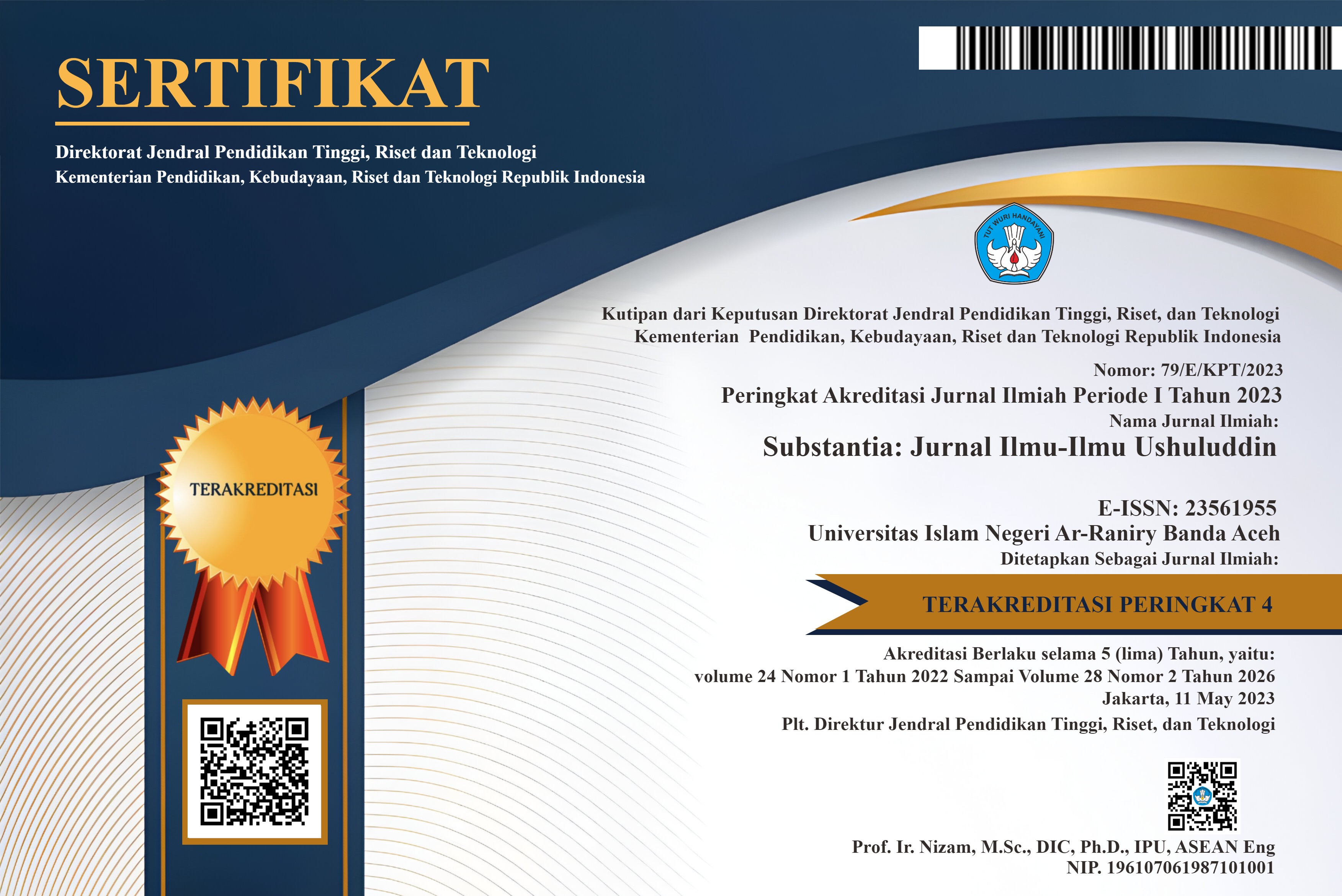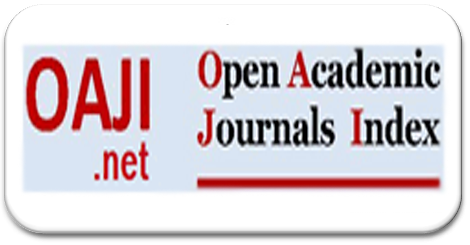Urgensi Filsafat dalam Ilmu Falak dan Relevansinya bagi Kehidupan Beragama Masyarakat
Abstract
Philosophy is known as the mother (root) of science. Obviously, all scientific disciplines stemmed from the mind (thinking) start with philosophy. During its development, however, science independently detached itself from its philosophical identity. Similarly, it also occurred in astronomy, which practically seems to split into various branches. Therefore, this research aims to reveal the substance of the philosophical essence in the discipline of astronomy. To this end, the study seeks to find out how philosophy contributes to astronomy, not only in its role as the theoretical framework but also as the practical orientation. This research was in the form of a qualitative method, whose reference sources were based on literature studies. The findings suggest that philosophy has prominent roles for science since in astronomy, the origins of universe formation such as nebula and the big bang theory are also discussed. In philosophy, the creation of the universe was previously studied by philosophers centuries ago, long before the BC (Before Christ) calendar was discovered. Moreover, the solar system, eclipses, prayer entry times, Islamic calendar, the calculation of ‘qibla’ direction, and such were discussed in philosophy in a similar fashion as well. Astronomical terms were also consistently mentioned in depth by philosophers long before astronomy was acknowledged. In fact, some of the astronomers are also philosophers. Thus, it is effectively helpful to study astronomy through philosophy to fully comprehend it. In conclusion, when the philosophical foundation about the conceptual of astronomy has been solid, it will strongly impact on determining the right policy for the socio-religious life of the community. If the substance of philosophy and science are in perfect harmony, it will produce an ideal formula for more contextual and moderate religious policies.
Abstrak
Filsafat dikenal sebagai induk ilmu pengetahuan, semua ilmu yang memainkan peran akal (berpikir) tentu berawal dari filsafat. Pada perkembangannya, ketika ilmu itu mampu berdiri sendiri, maka ia melepaskan diri dari identitas filsafat. Begitu juga dengan ilmu falak yang secara praktis seolah berdiri sendiri dengan berbagai cabang-cabangnya. Penelitian ini bertujuan untuk merefleksikan pentingnya esensi filsafat dalam disiplin ilmu falak. Adapun masalah yang diangkat adalah bagaimana filsafat itu berkontribusi bagi kajian ilmu falak bukan hanya dalam dataran teoritis namun juga dapat memberikan sumbangsih yang lebih luas pada orientasi praktis. Design penelitian ini menggunakan metode kualitatif dengan sumber referensi berbasis kajian pustaka. Temuan sejauh ini, menunjukkan bahwa peran filsafat sangat vital bagi ilmu falak, pada kajian Ilmu Falak membahas asal-usul penciptaan alam semesta seperti teori nebula, big bang, dan teori lainnya. Dalam Filsafat, penciptaan alam semesta sudah dibahas oleh para filosof alam bahkan berabad yang lalu sebelum tahun masehi ditemukan. Begitu juga ketika membahas sistem tata surya, gerhana, masuknya waktu shalat, kalender Islam, penentuan arah kiblat dan masih banyak lagi. Bila dikaitkan dengan filsafat, jauh sebelum Ilmu Falak lahir filsafat sudah membicarakan term terkait muatan ilmu falak secara lebih intens dan mendalam. Bahkan, tidak sedikit tokoh ilmu falak juga seorang filosof. Maka, sangat efektif jika mempelajari Ilmu Falak dimulai dari kajian filsafat agar pemahaman terkait muatan Ilmu Falak dapat dicerna secara orisinal. Kesimpulannya, ketika landasan filosofis terkait muatan Ilmu Falak sudah solid, maka itu sangat berpengaruh dalam menentukan kebijakan yang tepat bagi kehidupan sosial-beragama masyarakat. Dengan menyinergikan substansi filsafat dan Ilmu Falak maka akan menghasilkan formula ideal terhadap kebijakan beragama yang lebih kontekstual dan moderat.
Keywords
Full Text:
PDFReferences
A Khudori Soleh, Titik Temu Agama dan Filsafat, (Malang, UIN Press, 2011)
Admojo Wihad, Kamus Bahasa Indonesia, (Jakarta: Balai Pustaka, 1998)
Ahmad Fuad Basya, Ishâmat al-Hadharah al-‘Arâbiyyah wa al-Islâmiyyah fi ‘Ulûm al-Falak (Alexandria: Maktabah al-Iskandariyah, 2006)
Achmad Gholib, Filsafat Islam, (Jakarta: Faza Media, 2009)
Ahmad Zaini Dahlan, Al-Mukhtashar fi Ma’rifah as-Sinin wa ar-Rub’ al-Musytahir, (Mesir: Dar Ihya al-Kutub al-Arabiyah, tt.)
Asmoro Ahmadi, Filsafat Umum, (Jakarta: Raja Grafindo Persada, 2001)
Asmoro Ahmadi, Filsafat Umum, (Jakarta : PT Raja Grafindo Persada, 2016)
Bertens, Sejarah Filsafat Yunani, (Yogyakarta: Kanisius, 1975)
Encip Supriatna, Hisab Rukyah dan Aplikasinya, (Bandung: Refika Aditama, 2004)
Fachrudin Faiz, Filosof Juga Manusia, (Jawa Timur: Mesjid Jendral Sudirman, 2004)
Fachrudin Faiz, Tuhan Di Mata Para Filosof, (Bandung, Mizan, 2004)
FX. Mudji Sutrisno, dan Budi Hardiman (ed)., Para Filsuf Penentu Gerak Zaman (Yogyakarta: Kanisius, 1992)
Hart, Michael h. 100 Tokoh Paling Berpengaruh Di Dunia, (Jakarta: Mizan Publika,1992)
Kevin W. Fogg, “Southeast Asia and the Middle East: Islam, Movement, and the Longue Durée,” dalam Studia Islamika, Vol. 16, No. 3, 2009.
Rizal Mustansyir dan Misnal Munir, Filsafat Ilmu, (Yogyakarta: Pustaka Pelajar Offset, 2010)
Muktar Yahya, Pokok-Pokok Filsafat Yunani (Jakarta: Wijaya, 1962)
DOI: http://dx.doi.org/10.22373/substantia.v22i2.7664
Refbacks
- There are currently no refbacks.
Copyright (c) 2020 M. Anzaikhan

This work is licensed under a Creative Commons Attribution-NonCommercial 4.0 International License.
SUBSTANTIA: JURNAL ILMU-ILMU USHULUDDIN
DITERBIKAN OLEH:
FAKULTAS USHULUDDIN DAN FILSAFAT
UNIVERSITAS ISLAM NEGERI (UIN) AR-RANIRY BANDA ACEH, ACEH INDONESIA
ALAMAT REDAKSI:
Gedung Fakultas Ushuluddin Lantai II, Fakultas Ushuluddin, UIN Ar-Raniry, Jln. Lingkar Kampus, Kopelma Darussalam Banda Aceh, Aceh 23111.Telp. (0651)7551295. eMail: substantia.adm@gmail.com

This work is licensed under a Creative Commons Attribution-NonCommercial 4.0 International License.


.png)




















